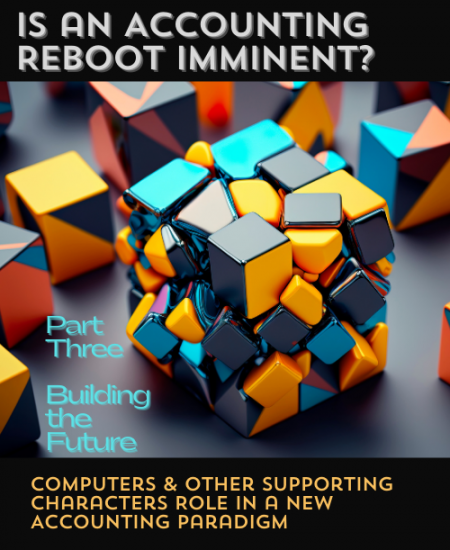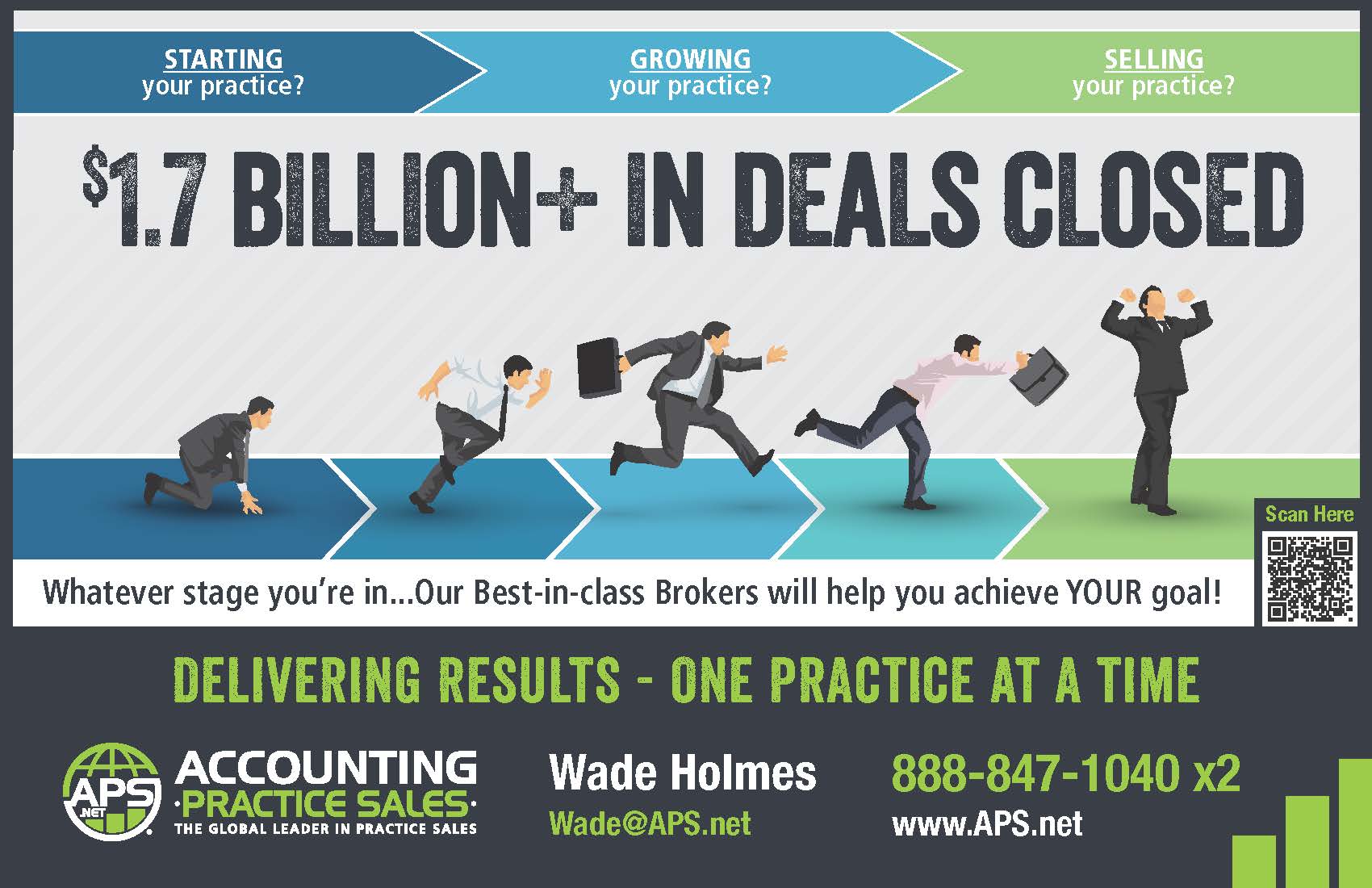
July 24, 2024
This blog series started in May, focusing on the accounting pipeline and many other issues storming the accounting profession. In June, the series continued with why the old way of doing things is no longer a viable solution and that breaking the mold is the best way to rebuild the profession in a dynamic new way that better reflects accountants' multi-faceted role in the modern business world. This month's blog continues by exploring ideas and innovative approaches underway to solve accounting's most vexing dilemmas.
Let's begin by identifying the key strategies within accounting organizations and those beyond the accounting corporate structure.
TECHNOLOGY
The most obvious innovation strategy is incorporating technology into business and personal development.
Automation => The blog article How Automation is Changing the Game in the Accounting Industry sums up the advantages of automation pretty well. It saves time, provides seamless integration, revolutionizes time allocation, optimizes record storage, provides rapid data access, increases daily productivity, and fosters more accurate data. These basics help with myriad functions specific to the accounting sector, addressed in a thorough review in The Future of Accounting: How Automation is Revolutionizing the Industry.
Artificial Intelligence => While relatively new, AI is already being utilized by large and small accounting firms. According to Thomas Reuters, firms use AI for document review, auditing, It, client solutions, accounting/bookkeeping automation, tax research, tax return preparation and tax advisory.
Metaverse/Blockchain/Analytics => Accounting Technologies: The Ultimate Guide does an excellent job of encapsulating the items mentioned above, as well as cloud computing, optical character recognition, blockchain, big data, the metaverse, mobile apps, and no-code development.
Human In the Loop => Incorporating technology is inevitable. The success or failure of technology will come down to human oversight. Who will research, choose, implement and oversee the technologies incorporated? Data analytics is only as good as inputs. Technology is only as good as the people managing the system and process. Incorporating technology-focused protocols and training into policy, procedures, and employee development will go a long way toward successfully modernizing the organization.
NEW BUSINESS MODELS
Gone are the days of the 100% partner-owned, in-office, hours-based accounting model, or at least numbered. The requirements of running a modernized, tech-savvy accounting firm render the old business model inadequate. Meeting the basic needs of finding and training qualified staff, recruiting clients, collecting their information, streamlining services, executing deliverables and maintaining the day-to-day operations is just the beginning of what clients expect from accounting firms today and into the future. Many have turned to new ways of running their organizations to stay relevant, ahead of the trends, and successfully navigate the new expectations.
Private Equity => While Private Equity might be an avante-garde idea for most, it has been around since August 2021 when TowerBrook Capital Partners acquired an ownership interest in EisnerAmper LLP, marking the first private-equity deal with a top 20 accounting firm (Journal of Accountancy). Since then, private equity firms have taken stakes in accounting firms large and small across the country and don't appear to be slowing down. Why are so many organizations jumping on the private equity bandwagon? Diversification and growth, access to capital, strategic partnerships, and value creation are a few of the driving factors.
Outsourcing/Nearshoring/Offshore Accounting => Outsourcing allows an organization to maximize time, talent and resources by allocating remedial and niche tasks. Relying on partners in these areas enables the focus to remain on the core business without turning clients to other providers for outlying accounting tasks. Nearshoring is outsourcing to another country that has an aligned timezone and · similar cultural compatibility, streamlining communication and processes. Offshoring or outsourcing excess work to foreign countries is on the rise, as is the number of companies willing to provide these services.
Fee Structures => The article Accounting services pricing guide: How to emphasize value in 2024 boils it down to three basic models: hourly, fixed-rate and value-based. It breaks down how to determine an organization's value, each model's pros and cons, and a tiered approach. The consensus in the article and industry seems to be that progressive firms will adopt a value-based model more conducive to clients, employees, and the business. "Value-based pricing is the future of billing for accountants (and the rest of the world). Firms can keep clients happy while harnessing technology to improve their bottom line.
THE CPA ENTOURAGE | CPAS' SUPPORTING CAST
Castaway might be the only movie with one actor to receive movie award recognition. Typically, it takes an entire cast to create a blockbuster movie. While accountants have moved from a business extra to the leading role, they have come to rely heavily on their supporting cast to make them shine. Therefore, pouring as much into the development of staff supporting the CPAs is just as important as investing in the CPAs themselves. Having highly skilled and qualified people to rely on allows CPAs to focus on the complex, high-level tasks that bring the most value to the organization. Great leaders are often defined by surrounding themselves with even better people. The same can be said of businesses. Some of the vital cast members in the organization may be:
BUSINESS AFFILIATES
It might be time to realize we are needed everywhere in business and realistically can't do it all. That is why developing good relationships and even business partnerships with specialists outside the accounting profession is more critical than ever. Below are a few examples to get the creative juices flowing of ways to cross business models to provide a new level of service.
Holistic Finance or Business Service Hubs => These are a relatively new concept where a building or office houses accounting professionals, finance professionals, lawyers, consultants, and other relevant entities in one location. A central location saves clients from running around town and talking to different people to meet their personal and business needs. It also allows service providers to work in tandem, ensuring clients' needs are met and questions are answered thoroughly and efficiently, with less margin for error.
Consulting => Having a list of trusted consultants can save time and headaches. They can be useful for providing insight, answering a question, or advising regularly on a topic or complicated client.
Law => Business regulations and laws are complex and change regularly. Having legal counsel identified to answer business questions and advise on how to best help clients is beneficial to ensure compliance with current standards. Not meeting standards can be costly and devastating for any business or individual.
Entrepreneurship => Knowing the right and wrong steps to starting any business venture makes good financial sense. Being versed could save everyone steps in the long run. In addition, with an uptick in retirements and firms looking to sell, merge or shift business strategies, understanding entrepreneurship is also incredibly helpful for established accounting firms and young accounting professionals looking to start firms.
Educators, associations and non-profits provide invaluable resources, knowledge and opportunities to expand and grow. They are hungry to collaborate on initiatives that move the accounting profession forward, enrich the talent pool and create win-win scenarios that benefit business, education and community.
Education => Supporting education at all ages and stages to build the accounting pipeline benefits us all. Universities are testing new programs and services to entice students to the accounting profession and allow them to streamline the path to CPA licensure. KSCPA provides an annual day-long INSPIRE Business Camp to high school students in Kansas to introduce them to the college and accounting career path. KSCPA also maintains a Speakers Bureau of accountants who are willing to present in classrooms and attend elementary through high school career fairs. AICPA is working with firms nationwide on their Experience, Earn, & Learn program to allow experience to qualify as hours to meet qualifications to sit for the CPA license.
DEI => AICPA, KSCPA, accounting firms, corporations, non-profits, and others provide a plethora of opportunities to connect to groups underrepresented in the accounting profession. These underrepresented groups are an area of exponential growth potential in the industry. Today's DEI programs can encapsulate things such as race, disabilities, veterans, religion, and gender.
Non-profits => Programs like Big Brothers Big Sisters of Kansas City have perfected the mentoring aspect of pairing adult mentors with youth to provide friendship, guidance and moral support. Most people don't realize they have recently taken that relationship a step further to support the youth beyond high school graduation into a career track. Soon, they will dive even deeper into youth development by partnering with the DeBruce Foundation and other KC agencies to support career identification and development for their Littles from junior high beyond high school graduation to help them transition to a successful career track to create bright futures for themselves. Bridging the gaps by partnering with career development programs like this is a surefire way to connect with tomorrow's workforce. Encouraging mentorship of all employees in some capacity through non-profits, alma maters, professional associations, or even the company is always a good idea. Often, mentors learn just as much, if not more, from the mentee. Financial literacy programs are also a great connection point for community involvement, accounting education, pipeline and business development.
KSCPA and AICPA => Both KSCPA and AICPA provide resources and guidance to accountants, aspiring accountants, educators at all levels and the community at large. We are here to help the accounting industry in any way we can. If there is a need not being met that we can facilitate, lead or participate in, please don't hesitate to reach out and share your insights. We can't do it all, but it helps focus our efforts on what can have the greatest impact on accounting. If you are not currently a KSCPA member, we hope you will consider joining!
There are many approaches to innovation in accounting organizations and the profession. Change is scary, but so is becoming irrelevant. Taking a step in any direction will help to keep pace with the speed of change in the world around us. Proceed with caution, use lifelines, rely on supporting cast members and develop everything to position the company and yourself for a lead role in accounting's blockbuster future.
If you haven't read Part One | The Perfect Storm - Watch, Warning or Destruction? and Part Two | BREAK THE MOLD™ and Boldly Lead the Profession of the Series, please do. Feel free to share with colleagues, mentors, students and others you feel might be interested in the challenges and opportunities facing the accounting profession.
 |
Liz Gaume |
The Ignite blog is an official publication of the Kansas Society of CPAs, Copyright 2024.
THANK YOU TO OUR SPONSORS & PARTNERS IN ACCOUNTING EXCELLENCE!
 |
 |
 |
 |
Would you like to showcase your business by sponsoring the Ignite blog? Click here for more information.
© Copyright 2026 KSCPA | All Rights Reserved